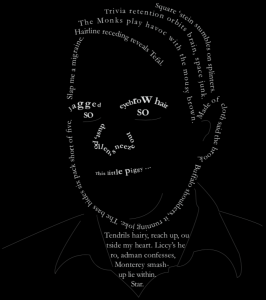What phrases do you tend to avoid and why?
 I think every phrase has a time and place, and if used at the right time and in the right place, then every phrase should be left in the author’s toolbox. I said in an earlier post that the word “suddenly” is ok but is not to be overused. It depends on the situation and the sentence in question.
I think every phrase has a time and place, and if used at the right time and in the right place, then every phrase should be left in the author’s toolbox. I said in an earlier post that the word “suddenly” is ok but is not to be overused. It depends on the situation and the sentence in question.
The phrases that I try to avoid tend to be ambiguous phrases that the reader has to really work at to be able to figure them out. For example:
“Follow me,” he said in a soft tone.
What is a soft tone? If it is a whisper then write whisper. Is the person speaking at a volume that is between a whisper and speaking normally? It’s not so obvious. Then, you have to ask yourself the question: why is he speaking in a soft tone? What could be the reason? If there is a context surrounding speaking softly, then it’s fair enough. An alternative to this phrase could be:
“Follow me,” he said, speaking softly.
You would still have to ask the question as to why the man is speaking softly.
“Follow me,” he said, speaking softly as to not be overheard.
Then you might as well write whisper, right?
“Follow me,” said the man softly but audibly.
This one is better but what could be the reason for half-whispering?
“Follow me,” the man said softly, trying to avoid attention.
“Follow me,” the man said softly, trying to keep the conversation private.
“Follow me, and I’ll tell you everything,” the man said softly, keeping the gossip between them.
Another phrase that crops up from time to time is “leaned in”. For example:
“The man leaned into the conversation in order to hear better.”
This is ok. However:
“The man leaned in for a hug and got a kiss as a bonus.”
Do you really need to add the description of “leaning in” for a kiss? Don’t humans already do this as part of hugging? Consider this instead:
“The man hugged the woman and got a kiss as a bonus.”
The word “hugged” already paints a picture of the action, so “leaned in” becomes redundant.


